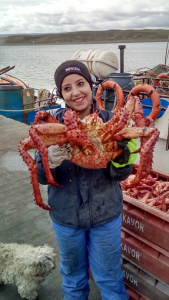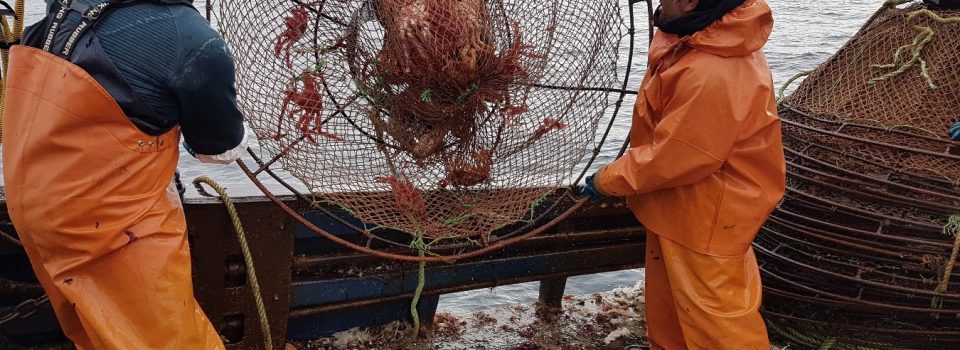The first advisory project on spider crab between INIDEP and the IFOP of Chile concluded
July 26th, 2021 During the month of July, National Institute for Fisheries Research and Development (INIDEP) Benthic Crustacean Fisheries Program members completed advisory tasks on crab resource (Lithodes santolla) to Fisheries Development Institute (IFOP ) scientists from Punta Arenas, Chile. This project is part of an inter-institutional agreement, whose mission is to contribute to fishing and aquaculturesustainable development .
During the month of July, National Institute for Fisheries Research and Development (INIDEP) Benthic Crustacean Fisheries Program members completed advisory tasks on crab resource (Lithodes santolla) to Fisheries Development Institute (IFOP ) scientists from Punta Arenas, Chile. This project is part of an inter-institutional agreement, whose mission is to contribute to fishing and aquaculturesustainable development .
On this occasion, the advice led by the person in charge of the Program, Dr. Carla Firpo, was focused on discards reduction, accompanying fauna and interaction with marine mammals in South Atlantic crab fishery and its application in crab capture in Magallanes Region, Chile and IFOP counterpart were represented by Marine Biologist Erik Daza. In addition, members of both research groups participated in this work: from INIDEP, Eng. Cecilia Mauna, Lic. Pablo Lértora and Tec. Valeria Mango; Researchers from Benthic Crustacean Monitoring Program, Eduardo Almonacid, Ruth Hernández, Andrés Olguín, Paulo Mora and Cristian Vargas shared their knowledge representing IFOP.
INIDEP scientists have extensive experience in planning and implementing selectivity devices use, such as escape rings installed in traps that fish for spider crab. These rings are mandatory for use in crab fleets since 2014, in accordance with the fisheries management measures established by Federal Fisheries Council. The main use objective of 3 escape rings in each trap is to reduce the discard of juveniles and female crabs, thus the capture is mainly made up of commercial-size males, as has been verified in numerous studies. Another benefit of these rings implementation is spider crabs marked capture reduction, main companion species in this fishery.
Crab fishing in Chile
In May 2020, IFOP awarded the study “Evaluation of fishing gear and proposal for ecosystem exploitation improvements and sustainable use of crab fishing in Magallanes Region”, financed by Wildlife Conservation Society Chile with the support of Walton Foundation. In the context of this initiative, Chilean organization considered it important to know how INIDEP researchers have worked on the development of regulations that regulate trap use for crab fishing in the Atlantic.
Between September 2020 and July 2021, virtual advisory meetings were held that included various talks on the crab fishery in Argentina and research experiences transfer related to escape rings design, operation and implementation. Procedures and progress made regarding monitoring of interactions with marine mammals in this fishery were also detailed. For their part, Chilean colleagues also trained their Argentine counterparts in Magellan fishing fleet dynamics, made up of a large artisanal fleet, whose operation has been monitored since 2007 by IFOP researchers and Scientific Observers with the aim of knowingthis species condition state. All these activities were carried out virtually between September 2020 and July 2021.
The development of collaborations between scientists from both institutes is a fundamental part for the generation of new knowledge in pursuit of common fishing resource benefit . This advice was framed within an inter-institutional agreement whose mission is to contribute to fisheries and aquaculture sustainable development. Undoubtedly, this counseling success will serve as a trigger to achieve new experiences of working together.
IFOP researcher Erick Daza, explained this work is based on the advice that we hired as part of the project: “Evaluation of Fishing Art and Proposal for Ecosystemic Exploitation Improvements for Crab Fishing Sustainable Use in Magallanes Region” and that is coordinated with INIDEP researchers.
News source INIDEP
